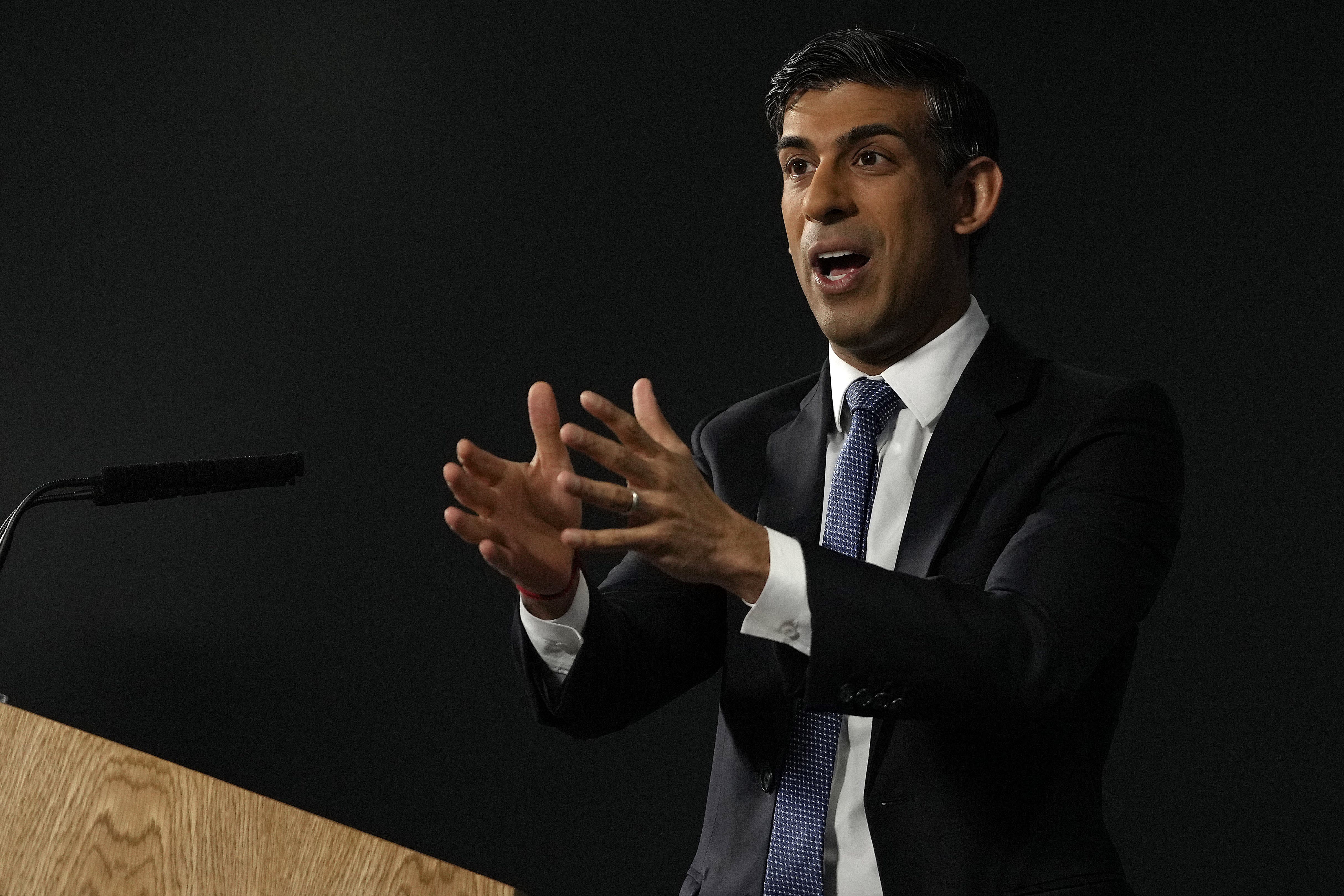Rishi Sunak wants businesses to know he ‘has their back’ – but is it enough?
The prime minister’s Business Connect event comes as post-Brexit concerns are front and centre for companies. He must do more to prove he is pro-business, believes James Moore


When it comes to business, the government has replaced the F word with a C word: Connect!
“We’re ashamedly pro-business,” prime minister Rishi Sunak declared to a gathering of industry leaders as he launched new initiative Business Connect. Some may see that as a bit rich coming from a man dealing with what I see as the most anti-business policy this nation has ever had foisted upon it.
That would be Brexit. Of course, the ruinously hard version of it was Boris Johnson’s gift to the nation. Sunak, Johnson’s former chancellor, has meanwhile managed to smooth the roughest of its edges – the Nothern Ireland protocol – with his Windsor Framework. It sailed through the House of Commons and eased the very real fears of a potentially ruinous trade war with Britain’s biggest trading partner.
The level of concern caused by Brexit among some of Britain’s top finance directors – per a recent Deloitte survey – has fallen to a six-year low. So there’s that. And, really, anything is an improvement given how the concerns of the high priests of British commerce were dismissed under previous Tory administrations. The latter was exemplified by Boris Johnson’s reported off-camera “f*** business” comment.
But Sunak was challenged at the event by the chairman of Burberry over the “spectacular own goal” of a post-Brexit VAT change. Gerry Murphy told the PM that his move to scrap the VAT refund for tourists has made Britain the “least attractive” shopping destination in Europe. Murphy welcomed Sunak as being “obviously more business friendly than some predecessor administrations” but had some blunt words for the Downing Street incumbent.
“Leaving the EU has had a significant friction effect on trade, hopefully not forever ... but it is the case it was a drag on growth... So we ask you to look at this specific one (VAT), this is a spectacular own goal, one that can be reversed by a decision from you or from the chancellor,” Murphy said.
It is clear that business needs a means of keeping channels of communication open at a time when its chief lobbyist, the CBI, has spectacularly imploded with neither the government nor the opposition prepared to work with it. Given the nature of the allegations tabled against the organisation, it may have to be rebuilt from the ground up. Poor Rain Newton-Smith. Being director general of the CBI, a position she has assumed, was once a career-defining job. It now looks like a blot on anyone’s CV.
Is Business Connect what is needed? Love is in the air, at least from the side of the government. It is, we were told it was going to “champion the dynamism of UK businesses to unlock innovation and grow the economy”. That’s quite a script for quite the performance to start the week. Performance is, of course, all part of politics, especially with an election looming and a deficit in the polls to deal with (although it’s narrowed of late).
Policy, however, matters too. So let’s talk about that. Do we still have an industrial strategy? Anyone? One is rather needed. Not to put too fine a point on it, but a dose of reality amid all the warm wards, handshaking and backslapping came courtesy of the findings of EY-Parthenon, the business consultancy, which reported 75 profit warnings in the first three months of the year, the highest number since Covid-19 started its destructive activities.
This served as a bad look and a bad sign for an economy predicted to be in the international slow lane by the IMF among others. So much for Rishi Sunak’s Silicon Valley dreams: the rise was driven by the tech sector.
There may also be trouble ahead from life sciences too, another key industry. The Association of the British Pharmaceutical Industry holds its annual get-together this week as both GSK and AstraZeneca reveal their results.
The latter is a bona fide success story, having eclipsed Pfizer, which failed to gobble Astra up with a hostile takeover bid, in terms of market value.
You may recall that Astra recently revealed plans to place a new factory in Ireland rather than the UK, citing tax among other things. The comments of its CEO Pascal Soriot, one of those rare business leaders who might be worth something close to their inflated salaries, may serve as a counterblast to all this if he is inclined to put the boot in.
Is Britain under Sunak’s Tories still a good place to invest? Soriot may have views. A test of Sunak’s sincerity is whether he is minded to take them on board and whether he has the wherewithal to act on them.
As he and others may say in so many words, it’s all very well to be on the receiving end of a love bomb but it doesn’t pay the rent. Even if Sunak is sincere and this does mark something of a reset, a new beginning, there was also an elephant at the back of the room while he was speaking. Relations with workers and their organisations – that would be the unions – are at a low ebb.
You can’t improve productivity, drive growth and create a dynamic modern economy without an engaged and properly compensated workforce. The approach of Sunak’s government to that workforce is, at the moment, much more war-war than jaw-jaw. Repressive anti-strike legislation, which even Britain’s bosses have never called for, is only set to pour petrol on what is already a fast-burning fire.
Join our commenting forum
Join thought-provoking conversations, follow other Independent readers and see their replies
Comments
Bookmark popover
Removed from bookmarks